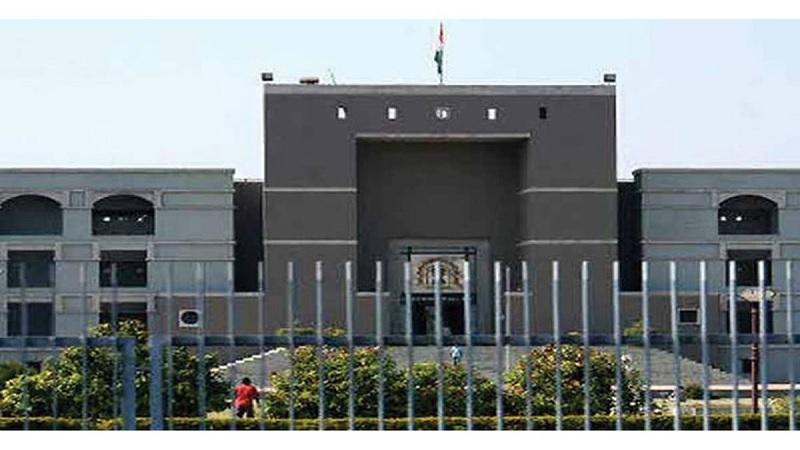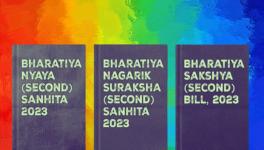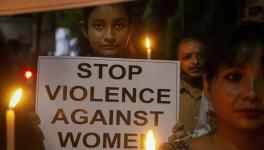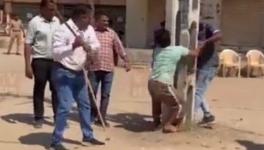Gujarat HC rules on PASA Act, claims Preventive Detention untenable

Image Courtesy:indianexpress.com
On March 21, 2022, the Gujarat High Court quashed the detention of one Mr.Dilip Yadav who was detained under section 3(2) of the Gujarat Prevention of Anti-Social Activities Act (PASA), 1985.
This is not the first time that the Court has ruled against the draconian statute. The Gujarat High Court has time and again warned the state’s police and the detaining authority against the pertinent misuse of this law in force for over three and a half decades. In April 2019, Times of India reported that since the announcement of general elections in 2019, over a period of 31 days, 228 persons were detained under PASA while 48 were externed from city limits. The then Additional Commissioner of Police, Special Branch, Premvir Singh said that 49,423 persons had been detained and 6,866 arrest warrants issued.
In today’s landmark judgement, the High Court allowed the petition and set aside the impugned order of detention passed by the detaining authority.
Petitioner’s argument
The Petitioner submitted that registration of the solitary offence/s under Sections 65-AE, 116-B 98(2) and 81 of the Prohibition Act by itself cannot bring the case of the detenue within the purview of definition under section 2(b) of the Act.
Illegal activity likely to be carried out or alleged to have been carried out, as alleged, cannot have any nexus or bearing with the maintenance of public order and at the most, it can be said to be breach of law and order.
No other relevant and cogent material is on record connecting alleged anti-social activity of the detenue with breach of public order.
It is not possible to hold, on the basis of the facts of the present case, that activity of the detenue with respect to the criminal cases had affected even tempo of the society causing threat to the very existence of normal and routine life of people at large or that on the basis of criminal cases, the detenue had put the entire social apparatus in disorder, making it difficult for whole system to exist as a system governed by rule of law by disturbing public order
Respondent’s arguments
Sufficient material and evidence were found during the course of investigation, which was also supplied to the detenue, indicate that detenue is in habit of indulging into the activity as defined under section 2(b) of the Act.
Gujarat High Court’s Judgement
Unless and until, the material is there to make out a case that the person has become a threat and menace to the Society so as to disturb the whole tempo of the society and that all social apparatus is in peril disturbing public order at the instance of such person, it cannot be said that the detenue is a person within the meaning of section 2(b) of the Act.
As argued by the Petitioner, the Court states that simplicitor registration of FIR/s by itself cannot have any nexus with the breach of maintenance of public order and the authority cannot have recourse under the Act and no other relevant and cogent material exists for invoking power under section 3(2) of the Act.
The judgement cites the decision of the Supreme Court in Pushker Mukherjee v/s State of West Bengal [AIR 1970 SC 852] which clearly lays down the distinction between ‘law and order’ and ‘public order’:
“When two people quarrel and fight and assault each other inside a house or in a street, it may be said that there is disorder but not public disorder….The contravention of any law always affects order but before it can be said to affect public order, it must affect the community or the public at large….. A mere disturbance of law and order leading to disorder is thus not necessarily sufficient for action under the Preventive Detention Act but a disturbance which will affect public order comes within the scope of the Act.”
The judgement may be read here:
Some key provisions of PASA:
The law came into force in 1985. The ‘definition’ of offenders who can be charged under this law are vague and easily prone to misuse. The definitions include “cruel person” “dangerous person”, “property grabber”, “unauthorised structure” among many others.
A “cruel person” means a person, who either by himself or as a member or leader of a gang, habitually commits or attempts to commit or abets the commission of an offence punishable under section 8 of the Bombay Animal Preservation Act, 1954.
A “dangerous person” means a person, who either by himself or as a member or leader of a gang, habitually commits, or attempts to commit or abets the commission of any of the offences punishable under Chapter XVI or Chapter XVII of the Indian Penal Code or any of the offences punishable under chapter V of the Arms Act, 1959.
Section 3 of the Act gives the government the power to issue a detention order against any person for preventing them from acting in “any manner prejudicial to the maintenance of public order”. Again, public order is widely and vaguely outlined or defined: the explanation to this tern within the law n describes public order being affected if any activities of the offenders is causing or is likely to cause any harm, danger or alarm or feeling of insecurity among the general public or any section thereof, or if (there is) a grave or widespread danger to fife, property or public health.
The amendment
The amendment Bill of 2020 brought cyber offences also under its ambit which meant any person committing offences described under the Information Technology Act can be detained under PASA. Further it also included money lending offences, which included persons engaged by money lenders who threatens or do use force to collect money from people. It also now includes sexual offenders which could mean anyone who commits sexual offences as defined under the Indian Penal Code.
The offences that are being covered under PASA are already offences under some law or the other which means there are already punishments prescribed for these offences but the wider scope of PASA would mean the Police is empowered to practically detain anyone on suspicion of committing of these wide range of offences without due process.
Get the latest reports & analysis with people's perspective on Protests, movements & deep analytical videos, discussions of the current affairs in your Telegram app. Subscribe to NewsClick's Telegram channel & get Real-Time updates on stories, as they get published on our website.
























